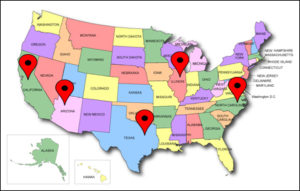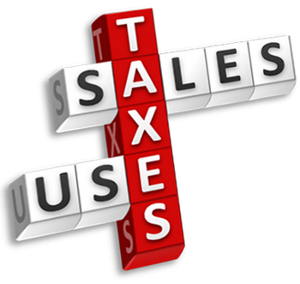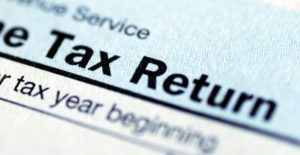Today we have a guest post from Mark Faggiano. Mark is the founder and CEO of TaxJar. We hope you find the information as helpful as we have.
I get it. Sales tax can be confusing and intimidating. The rates change from location to location. The laws change from state to state. And don’t get me started on the legalese. What the heck is “nexus” anyway?
As the founder of TaxJar, I talk to eCommerce sellers of all experience levels every day. Over and over I’ve found that several common fears prevent sellers from tackling sales tax. These include:
1. Sales tax is governed at the state level – Sales tax laws are created at the state level, so there’s no central, overarching

“IRS” for sales tax in the U.S. For this reason, one state might consider some items (like groceries or textbooks) taxable, while another might not. Or one state might want sellers to file their sales tax returns on the last day of the month while another will want to hear from that same seller on the 20th day of the month. Dealing with multiple states’ laws can present a major challenge right out of the gate for eCommerce sellers.
2. Sales tax laws were written for brick-and-mortar businesses – Another reason sales tax can be so intimidating? The laws simply weren’t written with eCommerce sellers in mind. The language and thinking around many sales tax laws simply don’t apply. For example, sometimes shipping charge

s aren’t taxable if a customer has the option to physically pick up a product at your location. This is, of course, impossible for Amazon sellers (among others). States are still interpreting their laws when it comes to online
sellers.
3. There are a lot of rumors and misinformation out there – I demystify sales tax misconceptions e
very day. Common rumors include that online sellers don’t have to charge sales tax at all, or that Amazon takes care of all sales tax obligations if you use their sales tax collection service. Sales tax can seem much more complicated when you’re trying to untangle fact from fiction.
But fortunately…
 Getting started is the hardest part – How many times have you dreaded a task like going to the gym or tackling a stack of laundry only to find that things are smooth sailing once you get started? Sales tax is the same way. Once you get started, it all clicks into place. Remember – states want you to collect sales tax from your buyers because it funds their budget items like roads and schools. And tools like TaxJar are here to help when you get stuck.
Getting started is the hardest part – How many times have you dreaded a task like going to the gym or tackling a stack of laundry only to find that things are smooth sailing once you get started? Sales tax is the same way. Once you get started, it all clicks into place. Remember – states want you to collect sales tax from your buyers because it funds their budget items like roads and schools. And tools like TaxJar are here to help when you get stuck.
Now that I’ve talked about why sales tax is so intimidating, let’s demystify it together.
The 5 Basic Steps to Sales Tax Compliance
 1. Determine your sales tax nexus states.
1. Determine your sales tax nexus states.
“Nexus” is Latin for a “tie” or “connection,” and sales tax nexus simply means that you have a tie or connection to a state that requires you to collect sales tax from buyers in that state. As I mentioned above, every state’s laws are different, but a few common factors generally create nexus: having a location or personnel in the state, attending a trade show in the state, or having other ties, such as a 3rd party affiliate or trade show presence, in a state.
Also, with the recent exception of Virginia, storing inventory in a state creates sales tax nexus in that state. This is where Amazon sellers often run into the intimidation factor. That’s why, if you are a new online seller, we often recommend starting with your home state when it comes to sales tax.
You can read a whole lot more about how to determine your sales tax nexus states in our free Sales Tax for Amazon FBA Sellers guide.
 2. Register for a sales tax permit in your nexus state(s).
2. Register for a sales tax permit in your nexus state(s).
Once you’ve determined your nexus states, your next step is to register for a sales tax permit in that state.
Don’t skip this step! Most states consider it unlawful to collect sales tax without a permit. (They’re suspicious, and afraid you’ll tell customers you’re collecting sales tax while really keeping that extra percentage of the sale in your pocket.)
You can find step-by-step guides to registering for a sales tax permit by state here.
When you register for your sales tax permit, the state will tell you how often and on what dates they want you to file a sales tax return.
 3. Collect sales tax from your buyers.
3. Collect sales tax from your buyers.
Once your business is registered to collect sales tax in a state, your next step is to ensure you’re collecting sales tax from your buyers in that state. If you sell on multiple channels, be sure you’re collecting sales tax on all of your shopping carts.
Out of the most popular shopping carts, Amazon has one of the most sophisticated when it comes to sales tax settings. To use Amazon’s sales tax settings, you’ll need to be a Pro Seller and then tell Amazon in which states you’d like to collect. You can find step-by-step instructions for setting up your Amazon sales tax settings here.
 4. Report how much sales tax you’ve collected.
4. Report how much sales tax you’ve collected.
When it comes time to file your sales tax return, your next step is to report how much sales tax you’ve collected from customers in each state.
Unfortunately this isn’t as simple as sending the states a single amount. The vast majority of states want you to break down how much sales tax you’ve collected by city, county and other special taxing district. In essence, they require you to help them distribute the funds collected to the right part of the state.
This is where sales tax automation can help. Tools like TaxJar will integrate all of the channels you sell on and give you all of your sales tax collected in return-ready reports. As your business grows more complex, automation takes sales tax off your plate.
 5. File your sales tax return(s).
5. File your sales tax return(s).
Now that you’ve reported how much sales tax you owe, your final step is to file your sales tax return and remit payment to the state.
You have a few options here. You can take your sales tax report and file online, or you can let a sales tax automation service file your sales tax for you. Either way, be sure you file on time to avoid fine and penalties. Some states will even give you a sales tax discount for filing on time! That means you get to keep a small amount of the sales tax you collected in your pocket!
Also don’t forget to file every time you have a sales tax return due, even if you don’t owe any sales tax to the state. Some states will fine you or even revoke your license for forgetting to file.
And that’s it – you’ve successfully mastered sales tax!
I know this is a lot of information, but most sellers tell me that once you face the learning curve, handling sales tax will become just another routine (but not necessarily fun) part of your business – like counting inventory or recording expenses.
Do you have questions or comments? Ask here or over in our Sales Tax for eCommerce Sellers Facebook Group.
For a much more in-depth explanation of sales tax, download our free Sales Tax for Amazon FBA Sellers guide.
 Author Mark Faggiano is the founder and CEO of TaxJar, a service built to make sales tax compliance simple for eCommerce sellers. Click this link to get a 30-day-free trial of TaxJar today and eliminate sales tax compliance headaches from your life!
Author Mark Faggiano is the founder and CEO of TaxJar, a service built to make sales tax compliance simple for eCommerce sellers. Click this link to get a 30-day-free trial of TaxJar today and eliminate sales tax compliance headaches from your life!

Mr. Faggiano is not an unbiased source for this sort of information. His interest is to scare as many people as possible into subscribing to his service. Furthermore, he is not a CPA.
If you do not have a warehouse, office, employees or other significant physical presence. There is settled interstate commerce laws which the SCOTUS has decided on and part of it states that a business has to have a “Significant” presence in the the state to create nexus.
Generally speaking, a significant physical presence means such things as:
having a warehouse in the state
having a store in the state
having an office in the state, or
having a sales representative in the state.
Please don’t be scaring everyone into rushing around and signing up with every state, causing a nightmare of filing issues that go beyond merely sales taxes.
One of the goals of this blog is to educate and inform Amazon sellers so they are equipped to make the best decisions for their Amazon businesses and to eventually start making a full-time income based on those decisions. I’m no CPA or tax expect, but I do trust Mark Faggiano and his team at TaxJar.
I think it was fair of Mark to give the “how to handle sales tax” advice by showing how to do it on your own as well as how to do it using his service. If Mark had only suggested TaxJar as the only solution, then I’d see your point, but he gave us a “do it yourself” strategy too. Taxes can be scary, and that’s why I wanted to have Mark come in and shed some light on this misunderstood topic.
I appreciate your comments/opinions and always want to hear both sides of an issue. While you think this post might cause more fear, I think it’s removing fear with Mark’s advice. It’s ok for us to disagree… that’s what makes for good discussion and learning for everyone.
I would also like to add that Mr. Faggiano did not provide any cites to support his claims of a need to sign up in every state you might have some books or other merchandise in an Amazon warehouse.
Hi Bill,
Thanks for bringing up these points. I will let Stephen address your first comment.
Here’s a link that Mark includes in step #1 in the post above: http://blog.taxjar.com/fba-sales-tax-nexus/
The blog post in this link covers this exact question and provides references.
While it is a headache to sign up and report taxes in each state that you have inventory at the FBA Fulfillment Center, for me, it certainly beats being worried about the Department of Revenue from each state levying fines and interest against my company for back taxes owed. I would rather not risk it. That being said, I do not many seven figure sellers who only report in their state. To each his own, but my business couldn’t afford to pay the fines and interest owed on back taxes.
Hi Bill,
I understand sales tax can be daunting and that you have questions. Here are sources for people who are wondering about sales tax laws in every state:
A list of the exact laws about sales tax nexus in every state: http://blog.taxjar.com/sales-tax-nexus-every-state/
A list of vetted sales tax experts to turn to for advice: http://www.taxjar.com/sales-tax-accountant-directory/
A list of the phone numbers for every state’s taxing authority (you don’t have to give your name when calling): http://blog.taxjar.com/state-sales-tax-phone-numbers/
You can also check out the TaxJar blog and state pages for more information about each and every state and sales tax.
http://blog.taxjar.com
http://www.taxjar.com/states
That said, it is ultimately up to you whether you and your business choose to comply with state sales tax laws. (We even have a post about that here: http://blog.taxjar.com/when-register-sales-tax-license/)
Our plethora of totally free resources give you the information you need to make those choices for your business. I hope these resources help answer your questions and point you in the right direction to do your own research.
And when you’ve collected sales tax and want to save time on reporting and filing, TaxJar is here for you. Cheers!
One thing that is never really mentioned is that signing up in other states is very expensive. There are both one time and recurring costs for registration in these states, from actual registration fees (which include initial and recurring fees), to the requirement to have a registered agent in each state ($100/year per state), to having to file income taxes in these states (even if your income for that state is zero). These are big expenses. For a small seller, like me, it’s not the collecting and paying of the taxes, it’s these other expenses. I believe this a big reason why many sellers choose to limit sales tax collection to their home state.
I wonder if there are any IRS audits involving FBA sellers who chose not to pay sales tax in states with Amazon warehouses they ship to (aside from their home state, if they have a home business only). If precedents have already been established for such actions (or inactions as is the case) then a point can be made for NEXUS. Otherwise, I would think it’s a bit overreaching if the jury is still out. Anybody have any personal experience with the IRS in this matter?
Hi Jennie,
Great comments! While we didn’t mention it in the post, most states cost less than $20 to sign up (and many are $0.) We posted a list just recently: http://blog.taxjar.com/fee-register-for-a-sales-tax-permit/
Also, states don’t require you to have a registered agent or to file income tax if you don’t have income tax nexus in the state. That said, we all know that states are hurting for money and may try to get more money out of you, so it’s definitely advisable to contact a CPA is you’re worried about income tax nexus liability.
We talk a whole lot about this in our Facebook group: https://www.facebook.com/groups/SalesTax4EcommerceSellers/ Sellers in each state (and sales tax pros) help other sellers get registered and avoid pitfalls like when tricky states try to send you a “tax questionnaire” to fish for other tax liability.
I know this can seem incredibly daunting at first, but I hear every day that “getting started is the hardest part.” Once you’ve figured out registrations and a filing schedule, sales tax becomes just another necessary (if not very fun!) administrative task. Thanks for your comment! 🙂
Hi Kent,
It’s a common misconception, but the IRS has nothing to do with sales tax. Sales tax is governed at the state level, which is why you register with each state when/if you have nexus. The authority and auditing body is the state Department of Revenue for each state.
We work with accounting partners like Peisner Johnson and Windward Tax (you can find their contact info here: http://www.taxjar.com/sales-tax-accountant-directory/) who help businesses out with their sales tax audits. Right now, California has been the most aggressive state (with Amazon fulfillment centers) when it comes to finding and auditing FBA sellers. Businesses are, understandably, unwilling to publicly write about their audits but I direct you to either CPA firm for more info.
The problem here is, if you’ve never been compliant with a state and they find out about you, they can come back and audit you since the beginning of your business. It all depends on the amount of risk you are willing to tolerate. If you only make 1 sale a year in South Carolina, and you get audited with fines and penalties, your business may be able to absorb the hit.
But if you should have charged $10,000 in sales tax in California and they find you, the fines and penalties could very well be punitive enough to really hurt your business.
As a professional and a business owner, I recommend really getting to understand your sales tax liability. Here’s a good place to start when it comes to assessing your risk: http://blog.taxjar.com/when-register-sales-tax-license/ I hope this points you in the right direction!
Thanks Jennifer,
Of course sales tax is not an IRS function. I should have known that, LOL!
Thanks for the additional info. Fortunately I live in CA and pay sales tax for the state. I’m also a small timer (right now) only having been an FBA seller for a few months. I can understand all your points though.
Ha! You’re sort of lucky in that way. You already file and pay in the big, bad wolf state! I actually talked to my team after your comment and found out that we are currently working with a seller in California who is getting audited in CA. While I can’t say any other details right now, I’ll tell you she is VERY high volume and her only nexus in CA was due to selling on FBA. I’ve asked if she’ll allow us to do a case study to illustrate what happens in the audit and how she deals with it. If she agrees I’ll post that on http://blog.taxjar.com. Good luck with your business!
Big bad wolf state sounds about right!
I used to enjoy this site and the youtube channel until this post. There is not one single instance that is recorded anywhere in all 50 states regarding any state audits for Amazon FBAers that have not signed up in all the other states other than their own physical locations. If the states all get onboard and push it up to the federal level so that it applies to everyone, and they all used the same definitions, then I would reach out to TaxJar and let them handle it. Until then, only follow the advice of actual CPAs in your own state as the rules are vastly different by state. If we followed Taxjar (who have everything to gain) advice, then Virginia would be collecting state sales tax twice. Really sad to have gotten this notice via e-mail today about this post, stating that you brought in a Sales Tax Expert. Please post the credentials so that I can verify/confirm them other than running an online business that charges for a service that manages the collection of sales tax in every state. List all of the requirements to register your business in every state where Amazon has a warehouse. To burden the State Revenue office with filing for you selling 1 item in their state and they need to collect 12 cents from you would cost them more in manpower and tracking efforts than the actual collection of the 12 cents, ultimately costing them money. If you do have any links to “audits” being done, it is most likely because that person or business didn’t actually follow the rules of their own physical presence and didn’t realize that certain entities at the state level are required to make certain reports, thus leading back to their doorstep. Swing an a miss.
Hi Johnny,
Jennifer with TaxJar here. Here are a couple of blog posts that speak to your points:
Virginia published a letter ruling that 3rd party fulfillment doesn’t create sales tax nexus and we rejoiced and posted on our site the day the news came out: http://blog.taxjar.com/virginia-sales-tax-nexus-fulfillment-centers/ Anything that makes sales tax for online sellers *easier* is awesome in our book.
Here’s our post on “when” to register for a sales tax permit: http://blog.taxjar.com/when-register-sales-tax-license/ It all has to do with risk tolerance. If you really do owe .12 a year in a state, then it probably sin’t worth it to you to register, and we talk about that in detail in this post and in the accompanying eBook.
I hope this sheds some light. I invite you to get to know more about TaxJar!
Let’s just sidestep the request regarding posting credentials for someone to be mentioned in the e-mail that I received “I’ve brought in a sales tax expert to help us both understand…” and then links to TaxJar and that the sale tax expert is the owner / founder of Taxjar. Continue to ignore this request is a slippery slope indeed. In place of answering that… more links to TaxJar.
I do commend the Smothermans for sticking up for what they believe but I feel it will have a negative impact after this post. I am really curious as to who reached out to whom… did Taxjar contact the Smothermans (someone whom I had previously trusted wholeheartedly and recommended their videos and blogs) or did the Smothermans reach out to TaxJar on the collaboration?
Hi Johnny,
As I mentioned to Bill, here are lots of resources where you can research sales tax yourself:
http://blog.taxjar.com/state-sales-tax-phone-numbers/ – The phone number of every state department of revenue, with directions to talk directly to a sales tax representative
http://blog.taxjar.com/sales-tax-nexus-every-state/ – A link to each state’s law about sales tax nexus (these links link to each state’s code of laws)
http://www.taxjar.com/sales-tax-accountant-directory/ – A list of vetted CPAs.
I really hope this helps you do your own research!
Jennifer, Stephen and Rebecca,
Thank you for all of your responses. I appreciate them, especially the sentiment that all views are appreciated.
All of the links provided to support the notion that sellers need to sign up in all these states are to TaxJar, which has a pecuniary interest in composing the tightest argument to convince people to buy their service to the exclusion of any contrary views. The idea that it is necessary to sign up in all these states is not a clear, proven fact.
I find a certain inappropriateness to advising sellers to sign up with a service regarding an issue that should be reserved for each individual sellers professional counsel. Whether it be a CPA, tax attorney or other. If you want to suggest the best box resizer, which repricer you find best or other such subject, fine. But to advise sellers to sign up for TaxJar, which has a clear conflict of interest, including hyperlinks which provide you with a percentage on all those who fall for this, I find to be irresponsible.
Furthermore, you do not address the issue which arises when you do sign up in many states, which is that they then think you are operating in their state, which you are not, and require you to file for a business license, file income tax returns for those various state that have them, among other responsibilities.
I do not have the time right now, but I will find the United States Supreme Court case that refutes the notion that by merely having some inventory in an Amazon warehouse creates a nexus and post it. It does not directly address Amazon, but it does define what constitutes nexus, and having some inventory in an Amazon warehouse does not cross that threshold.
Thank you for sharing your opinion, Bill. We only recommend products and services that we personally find value in as resellers. We see great value in the automation services of TaxJar. If others do not see it, then that is their choice. Yes, as in all things tax related, consult your CPA or tax professional before making your own personal decisions. We have a CPA who we consult on a regular basis, and we additionally trust the advice of the folks at TaxJar. If you do not, that is your choice, and we respect that.
The TaxJar links posted above in the article and in the comments lead to multiple places on their website where they have compiled tax information in one convenient location. We appreciate the effort TaxJar has taken to compile these links to state laws and other information on their website, and we do not feel the need to replicate their efforts here on our website.This is a resource they provide absolutely free. No one is compelling anyone to buy anything in this blog post or on their website. We are just trying to give people resources to do their own research on sales tax, and we love how much free information (including in the form of links to state laws on sales tax) is available on the TaxJar website. We stand by our decision to provide this information to our readers.
I guess my question would be: Are you signed up in all these states to collect and submit sales tax?
I would like to say that I read your blog regularly and have the utmost respect for it. I have gained much knowledge and insight from it. This post just struck a nerve with me on several levels. It simply is not currently the law that all FBA sellers need to collect and submit sales tax. And to suggest otherwise by promoting someone who has a vested interest in making people think they are is irresponsible.
Thank you, Bill, for your thoughtful, insightful comments. I believe they are understating the costs to register in these other states. When I started looking into it, the fees were hundreds of dollars, often recurring, and they were adding up to more than I could afford. I eventually shut down the FBA component of my business, and I’m primarily MF and eBay now.
I shop a lot at Amazon, and I always look at the different offers – both FBA and MF. Very few sellers seem to be collecting sales tax – just a few really big sellers.
Substantial Nexus
Quill Corp. v. North Dakota, 504 U.S. 298 (1992)
Background:
Quill, an office supplies company, had no physical presence within the state of North Dakota. In 1987, the statute, which defined “retailer” for tax purposes, was amended to include “every person who engages in regular or systematic solicitation of a consumer market in the state.” Thus, the Tax Commissioner of North Dakota sent notice to Quill stating that it owed a use tax for purchases that North Dakota residents made through Quill’s mail order catalog.
Holding:
Under the Commerce Clause of the Constitution, a state cannot require an out-of-state retailer to collect use tax unless the retailer has a “substantial nexus” with the taxing state.
The Supreme Court sided with Quill, ruling that a taxpayer must have a physical presence in a state in order to require collection of sales or use tax for purchases made by in-state customers. Physical presence means offices, branches, warehouses, employees, etc.
From a post made by Mr. Faggiano on his TaxJar website:
Part of the Quill v. North Dakota ruling includes a caveat: the court made sure to include that Congress can overrule the decision through future legislation. This is what we’re seeing today with potential bills like the Marketplace Fairness Act. While the future still remains uncertain which way it’ll go, there is at least some basis of this fight in history.
I cannot BOLD for emphasis on this thread, but if you carefully read the above you will understand that signing up in every state to file sales tax is not understood under law to be required. Even Mr. Faggiano concedes this point in the last paragraph of his own blog, albeit vaguely, which is copied and pasted above.
Hi Bill,
I’m afraid you’re misinterpreting Quill v. North Dakota. Quill n. North Dakota is actually the Supreme Court case that set the precedent that states can *only* require retailers with significant presence in their state to collect sales tax. If it weren’t for Quill, states could require ALL retailers in their state to collect sales tax from all buyers in the state. Quill v. North Dakota is actually a *protection* for online sellers. In fact, that’s why we’re seeing 2 internet sales tax laws in the U.S. Congress and many states passing laws that challenge the traditional standards of nexus (location, personnel, inventory, affiliate, temporary sales, etc.).
For example, Alabama recently passed an “economic nexus” law that says any retailer with over $250,000 worth of sales in the state – whether they have any physical presence there whatsoever or not – has sales tax nexus in the state. This law is designed to provoke retailers into a lawsuit that will eventually go to the Supreme Court and overturn Quill. Once Quill is overturned, the precedent that you are only on the hook for sales tax in states where you have nexus will be gone. Then every stay can say “Hey Bill, collect sales tax from all of your customers.”
This is a very interesting time to be an eCommerce seller. States are just now catching up to the fact that people are selling on platforms like FBA and other 3rd party fulfillment sites. Here’s a great article from Bloomberg BNA that I recommended to TaxJar users just yesterday: http://www.bna.com/eretailers-congress-feel-n57982076514/
Bill, you should most definitely consult your CPA about your sales tax compliance issues, but I urge you to do so as well as avail yourself to all of the resources I gave you in my above comment – the direct phone numbers to each state’s taxing authority, a link to each state’s code of laws regarding sales tax, and a list of sales tax experts. (Or feel free to find and call your own sales tax expert.)
Good luck with your business and I hope everything works out for you both when it comes to sales tax and in general!
“Once Quill is overturned, the precedent that you are only on the hook for sales tax in states where you have nexus will be gone. Then every stay can say “Hey Bill, collect sales tax from all of your customers.””
Until that day arrives, stop making blog posts implying that FBA sellers need to sign up in every state for sales tax. It simply isn’t the law.
Thank you for your thoughtful and extensive response.
Hi Bill,
I’m afraid you’re continuing to misunderstand me and all of the links I have posted. Each state makes laws about what creates nexus in the state, and with the exceptions of New York and Virginia (which have stated that 3rd party fulfillment doesn’t create nexus if that’s your sole activity in the state) , state laws say that having inventory for sale in the state create sales tax nexus.
Like I have said a few times, if you’re not going to believe my responses, give the states or a CPA a call, tell them the details of your business and where your inventory is stored, and ask. If you are afraid of the answer, you can do this anonymously. I emphatically stand by everything I’ve written and signed my full name to here today.
I mean, that’s what I did. It’s not hard.
I just called all the Departments of Revenue in the states where we had product in Amazon warehouses and they flat-out told us whether or not they consider that nexus. (Spoiler: They did.)
Oh, gee . . . They said send them money? Shocker!!
I understand your frustration and belief that Nexus shouldn’t apply but honestly how does that matter, what you personally think, that is? If the states want to audit, they will, no matter what you think or want. I’m curious, do you feel there is no chance they will audit you and have no concern? Do you feel they may audit you in which case you will fight them with endless funds and set legal precedents? Do you feel you can talk your way out of it if audited? or Do you feel your business wouldn’t take a big hit with interest and penalties anyway so it’s worth the risk? You’re a big talker. Just curious what your plan of action would be.
Yeah, imagine that!
It’s funny that you say it this way, because it’s now clear that *you know* they want you to collect, and then I see you argue against it in all these other threads in hopes that you will get away with not doing so.
It’s tacky.
Besides, it’s not your money you’re remitting, anyway, so just settle down, collect it like you’re supposed to, and send it in to the states so they can pay for police and fire, so they can patrol cities, and areas where you warehouse your product.
See how that works out?
Here are the blog posts about Virginia and New York, as well:
http://blog.taxjar.com/virginia-sales-tax-nexus-fulfillment-centers/
http://blog.taxjar.com/online-sales-tax-new-york/
Here are the blog posts about Virginia and New York, as well:
http://blog.taxjar.com/virginia-sales-tax-nexus-fulfillment-centers/
http://blog.taxjar.com/new-york-fulfillment-services-unique-exception-nexus-rules/
(Oops! Jumped the gun.)
” . . . state laws say that having inventory for sale in the state create sales tax nexus.”
Quill is controlling and overrides this notion.
We are now turning off the comments on this post. We value everyone’s opinion, but some of these remarks are beginning to cross the lines of civility.